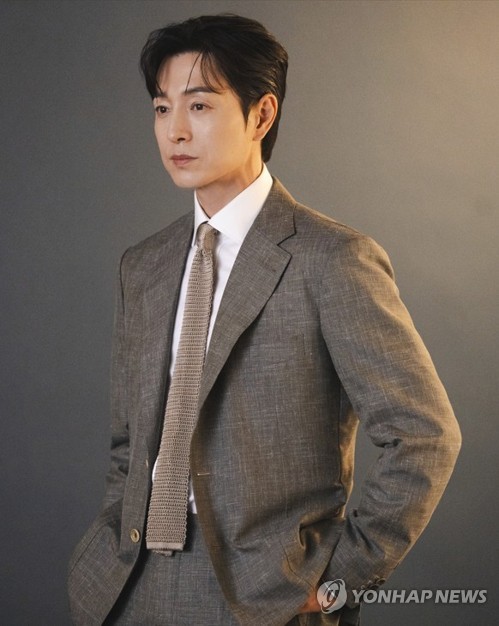Actor Jung Sung-il announced an agreed divorce with his wife, whom he married in 2016, in October 2025.
Both sides said the split was reached amicably with no party at fault.
They also stated they will share responsibility for raising their son.
The actor's agency asked the press and the public to refrain from speculative reporting.
Jung Sung-il's divorce: public interest vs. private choice
The outcome is clear.
Jung Sung-il married a non‑celebrity in 2016 and the couple had one son.
On October 14, 2025, his agency, XYZ Studio, announced the couple had completed an agreed (negotiated) divorce.
The official statement described the separation as "no party at fault" and "amicably settled."
The news shocked many fans, and calls for respect for the family's privacy quickly followed.

Tracing the background.
Reports say Jung and his wife were together before his career took off.
He often spoke warmly about her in interviews, building an image as a devoted husband.
One high‑profile moment came in 2023 on tvN's You Quiz on the Block (a Korean talk show), where he shared details of their relationship that raised fans' emotional expectations.
However, the decision to divorce after nine years suggests that public appearances of stability can hide complex, private concerns.
This case highlights how family matters resist easy judgment from the outside.
Meanwhile, public figures do carry a different burden: private choices can have public ripple effects.
On the other hand, this episode forces us to revisit the balance between privacy protections and the public's appetite for information.
Why some see the split as reasonable.
An agreed divorce can be read as a mature decision by both parties.
Settling matters without courtroom battles is a positive sign for everyone involved.
Most importantly, the promise to share child‑rearing responsibilities addresses a core social concern: the child's stability.
Seen this way, divorce is not merely failure but a pragmatic response to changing circumstances.
Moreover, public displays of affection do not guarantee an unchanging private life.
People grow and change; relationships evolve. Therefore, many argue we should not rush to shame or romanticize either partner's choices.
Given the entertainment industry's unstable schedules, intense work demands, and frequent invasions of privacy, private agreements can limit emotional harm.
Consequently, supportive voices have already shifted toward encouraging Jung's future work and personal recovery.
Concerns and criticism.
At the same time, the announcement disappointed and unsettled many fans.
Public comments Jung made in the past about his devotion to his wife now clash with the news, producing a sense of betrayal for some supporters.
In fan culture, celebrities are often idealized, and reality can therefore provoke strong negative emotions.
Meanwhile, certain outlets and online commentators have speculated that the pressures of acting, job insecurity, or stress affected the marriage.
Those claims, when unverified, can harm the reputation and emotional safety of the individuals involved.
Excessive intrusion by media and netizens increases mental strain on families.
Thus, privacy violations can go beyond discomfort and become tangible harm.
Finally, this case prompts a broader critique of a culture that consumes celebrities' private lives as entertainment.
Public interest should not justify turning other people's hardship into spectacle, many observers argue.
What might have caused it?
The statement said there was no party at fault, but it offered no proximate cause.
That silence both fuels curiosity and protects the family's right to privacy.
Still, several plausible factors merit consideration.
For example, an acting career often involves irregular hours, long shoots, and ongoing scrutiny.
Chronic stress can erode domestic balance over time.
At the same time, partners can change in ways that are hard to reconcile—different life goals, shifts in priorities, or conflicting routines.
These elements frequently interact and may have led to the decision to separate.
In short, the cause is unlikely to be a single item, and outside observers should avoid definitive claims.
Therefore, we should keep open the range of possibilities and prioritize respect for the couple's choice.
Interpreting online reaction.
Online responses mixed shock, grief, critique, and calls for privacy.
Some fans expressed deep disappointment while also asking for restraint from the media.
Others quickly shifted focus to the actor's career prospects and how he might recover professionally.
Past celebrity divorces show similar patterns: communities split between emotional responses and demands for facts.
Rumors without evidence spread fast and sometimes inflict secondary harm on families.
As a result, debates about journalistic standards and platform responsibility resurface repeatedly.
In the digital age, information flows easily—and personal lives become exposed more readily.
What this means for society.
Jung Sung‑il's divorce is more than private news; it prompts public conversation.
Families come in many forms today, and negotiated divorces with shared parenting reflect that diversity.
We should therefore work toward a culture that accepts changing family models without stigma.
At the same time, the role of media and the public needs recalibration.
Coverage should prioritize verification and human dignity over sensationalism.
In practice, protecting the couple's mental well‑being and the child's developmental needs must be the primary consideration.
Practical suggestions.
First, newsrooms should strengthen fact‑checking and avoid speculative headlines.
Second, fans and ordinary internet users should stop sharing unverified claims and show basic consideration for privacy.
Third, celebrities need institutional supports—legal, psychological, and scheduling—that help balance public roles and private life.
Finally, social services for co‑parenting and child welfare should be reinforced so children's needs remain protected after a split.
These recommendations apply beyond this single case and deserve long‑term attention.
Conclusion.
Jung Sung‑il's agreed divorce is both a private choice and a matter of public concern.
The amicable settlement and commitment to joint custody are worth acknowledging.
Yet unfounded reporting and intrusive behavior should be rejected.
We must rethink the balance between a public figure's rights and the public's right to know.
When media ethics and social safety nets advance together, the chances for recovery and stability—especially for children—improve.
How do you interpret this news?
To summarize: reporting grounded in facts and respect for privacy should come first.
Society should prioritize the well‑being of children and families in its response.
Reader question: What are your thoughts and feelings after reading this report?
